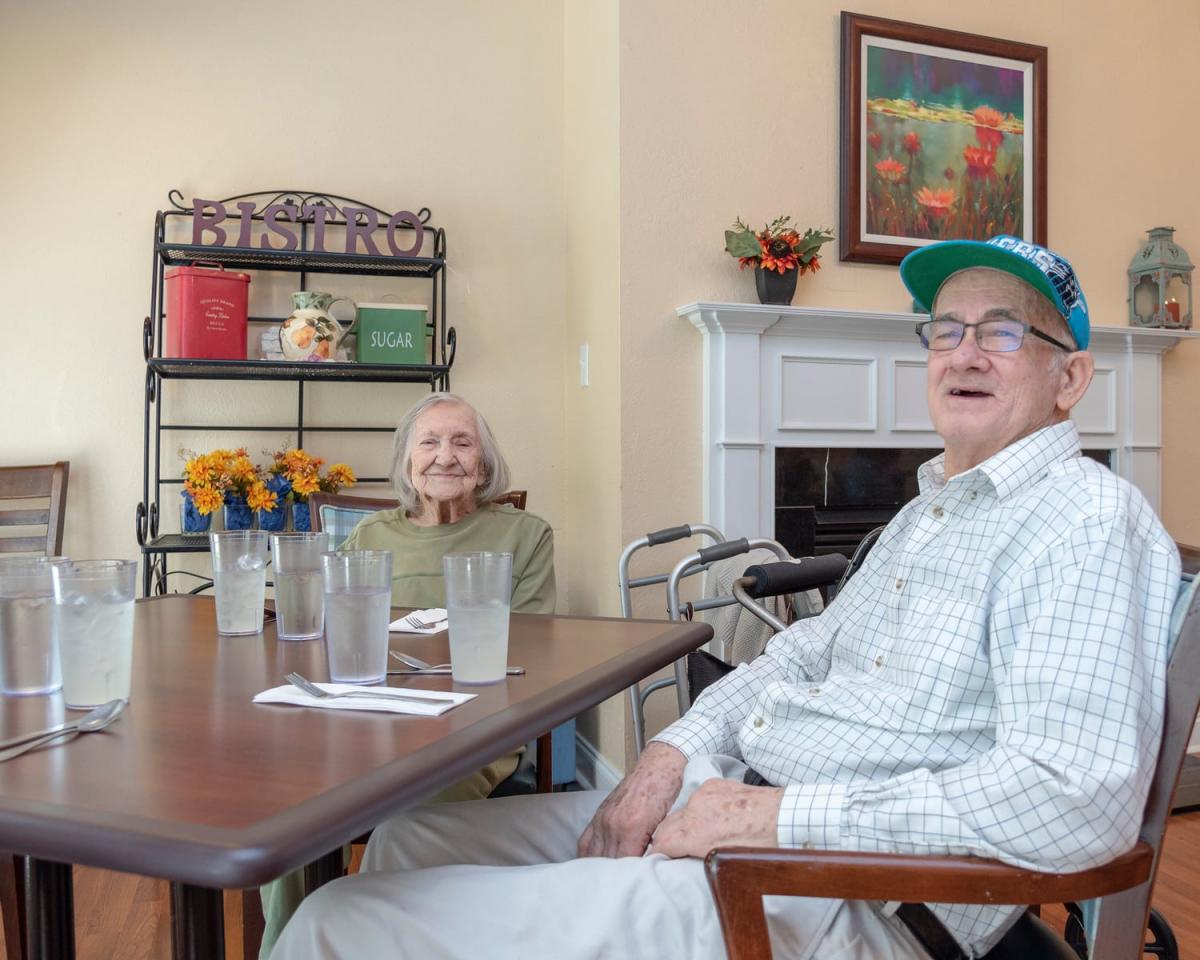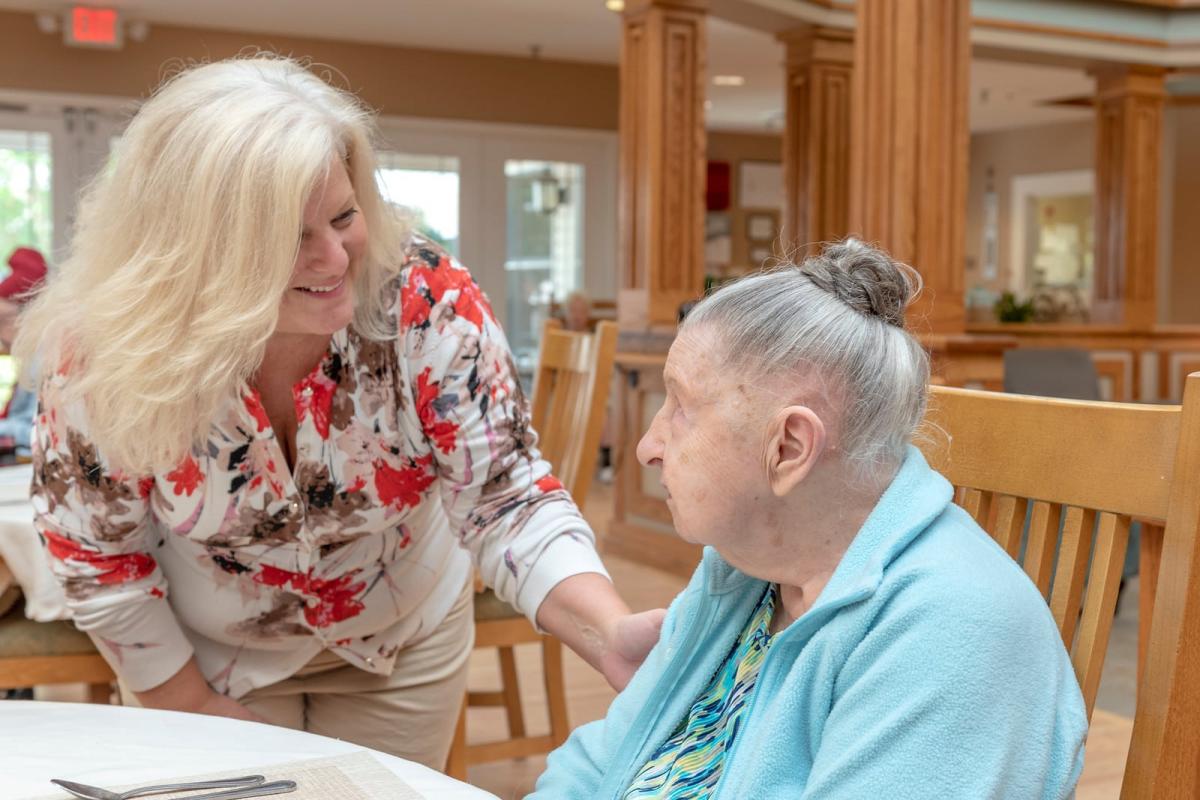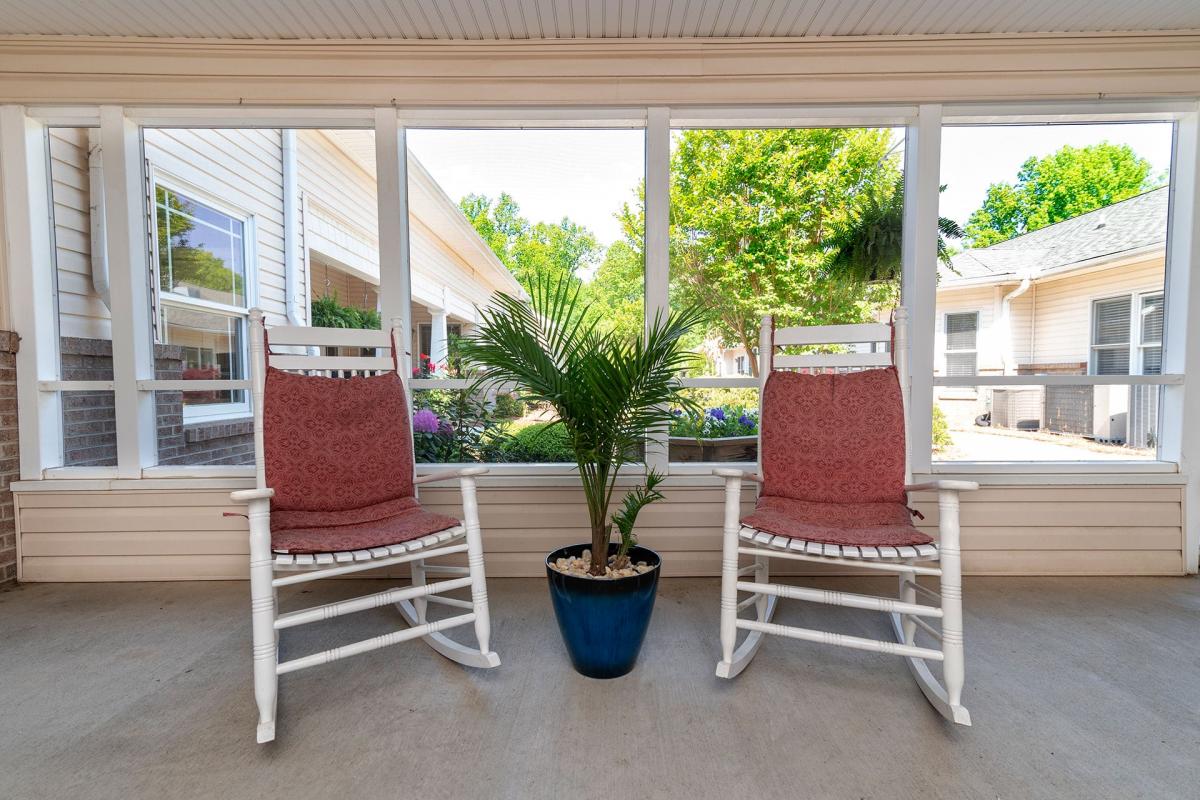BROOKSTONE TERRACE OF CLEMMONS
Our 40-bed community in Clemmons, NC is a warm and friendly homestyle assisted living that caters to the needs of senior adults who need a little help to get through the day. We offer large furnished or unfurnished bedrooms, spacious walk-in closets, large bathrooms, and an open concept in our inviting and comfortable living rooms. The natural lighting, 15-foot ceilings, handicapped accommodations, and beautiful furnishing are all designed with you in mind.
Gather by the big screen TV and share the movie of the week, join your friends in the large, beautifully furnished common areas, bask in front of the fireplaces, or sit outside on one of our porches to view the fountain and gardens.
The beautifully decorated building is the perfect place to visit with old friends, make new ones, and continue doing the things you enjoy. This unique assisted living community caters to a small number of individuals, creating an intimate setting that surrounds you with personal care and attention.
TESTIMONIALS
PERSONALIZED CARE. INDIVIDUALIZED ATTENTION.
we cater to a community of 40 residents
we keep our residents busy with an average of 80 activites a month
We are available for residents & family 24 hours each day
BROOKSTONE TERRACE OF CLEMMONS IS SOMEPLACE SPECIAL.

Brookstone Terrace of Clemmons provides round-the-clock personal care and assistance. Living here, our residents feel secure in the knowledge that there is always someone close by if they need help. Our friendly, well-trained staff will do everything they can to support residents and their families.

Our Memory Care Program is designed to enhance the lives of older adults with memory impairment by offering a dementia-specific activities program, and personal care to best suit their individual needs.

At Brookstone Terrace of Clemmons, we provide a wide array of services and amenities designed to enhance recreation, foster social interaction, and satisfy your dining desires. Come be a part of our vibrant community!
SCHEDULE A TOUR
Schedule a Tour of a Brookstone Terrace Community




